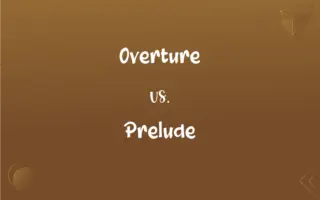Inure vs. Enure: What's the Difference?
Edited by Aimie Carlson || By Janet White || Updated on March 4, 2024
Inure means to accustom to something, especially something unpleasant, while enure, a variant spelling, often emphasizes legal contexts.

Key Differences
Inure refers to the process of becoming accustomed to something, typically difficult or unpleasant conditions, through prolonged exposure. Whereas enure, often used interchangeably with "inure," tends to appear more in legal documents and contexts, emphasizing the coming into effect of laws or conditions.
The term inure is commonly used to describe the adaptation to hardships or challenging situations, making an individual or group more resilient. On the other hand, enure, although less common in everyday language, serves to highlight the establishment or effectiveness of legal agreements or conditions.
While inure is often used in a broad range of contexts to denote acclimatization or habituation to various circumstances, enure is specifically tailored to denote the legal enactment or coming into force of agreements or provisions, making it a more specialized term.
In literature and everyday language, inure is the preferred term when discussing the concept of growing accustomed to certain conditions or situations, emphasizing personal or collective resilience. Enure, however, is predominantly found in legal texts, where it is used to describe the activation or application of legal terms and conditions.
Comparison Chart
Definition
To become accustomed to something, often unpleasant
Variant of inure, often used in legal contexts
ADVERTISEMENT
Usage Context
General, including personal and environmental adaptation
Primarily legal, relating to the effectiveness of laws or agreements
Connotation
Adaptation and resilience in the face of challenges
Legal enactment and the coming into effect of provisions
Commonality
More commonly used in everyday language and literature
Less common, primarily found in legal documents
Focus
Personal or collective acclimatization
Legal agreements and their activation
Inure and Enure Definitions
Inure
The process of inurement involves adaptation and resilience, often leading to increased tolerance or immunity to specific conditions.
Living in a cold climate can inure you to the chill, making you less sensitive to lower temperatures.
ADVERTISEMENT
Enure
Enure, often interchangeable with inure, is particularly used in legal contexts to refer to the coming into effect of laws or agreements.
The new regulations will enure upon publication in the official gazette.
Inure
This term is versatile, applicable to a wide range of scenarios, from physical endurance to emotional strength.
Marathon runners inure their bodies to long distances through consistent training.
Enure
This term emphasizes the legal activation or application of conditions, agreements, or provisions.
The clause in the contract enures to the benefit of both parties.
Inure
Inure highlights the positive aspects of adaptation, suggesting growth and strengthening through adversity.
Hardships often inure individuals, making them more robust and resilient.
Enure
In legal discussions, enure provides a precise term for the enactment or effectiveness of legal terms.
Upon the death of the owner, the property will enure to the state under escheat laws.
Inure
Inure means to become accustomed to something, especially something unpleasant or difficult.
Soldiers inure to the hardships of battle through rigorous training.
Enure
Enure is less common in everyday language and is more specialized, primarily appearing in legal documents and discussions.
The rights granted by this license will enure to the heirs and successors of the parties.
Inure
Inure can also imply a psychological or emotional conditioning, where one becomes desensitized to certain stimuli or events.
Constant exposure to criticism can inure a person, making them less affected by negative comments.
Enure
Although enure can be used outside legal contexts, its usage in such cases is relatively rare and often follows the same meaning as inure.
Benefits of the new policy will enure to all employees, ensuring a more equitable workplace.
Inure
To habituate to something undesirable, especially by prolonged subjection; accustom
"Though the food became no more palatable, he soon became sufficiently inured to it" (John Barth).
Enure
Variant of inure.
Inure
(transitive) To cause someone to become accustomed to something that requires prolonged or repeated tolerance of one or more unpleasantries.
Enure
(transitive) To inure; to make accustomed or desensitized to something unpleasant due to constant exposure.
Inure
To take effect, to be operative.
Jim buys a beach house that includes the right to travel across the neighbor's property to get to the water. That right of way is said, cryptically, "to inure to the benefit of Jim".
Enure
To take effect, to be operative; used with to.
Inure
To commit.
Inure
To apply in use; to train; to discipline; to use or accustom till use gives little or no pain or inconvenience; to harden; to habituate; to practice habitually.
He . . . did inure them to speak little.
Inured and exercised in learning.
The poor, inured to drudgery and distress.
"Here the fortune of the day turned, and all things became adverse to the Romans; the place deep with ooze, sinking under those who stood, slippery to such as advanced; their armor heavy, the waters deep; nor could they wield, in that uneasy situation, their weighty javelins. The barbarians on the contrary, were inured to encounter in the bogs, their persons tall, their spears long, such as could wound at a distance." In this morass the Roman army, after an ineffectual struggle, was irrecoverably lost; nor could the body of the emperor ever be found. Such was the fate of Decius, in the fiftieth year of his age; . . .
Inure
To pass into use; to take or have effect; to be applied; to serve to the use or benefit of; as, a gift of lands inures to the heirs.
Inure
Cause to accept or become hardened to; habituate;
He was inured to the cold
FAQs
How do inure and enure differ in usage?
Inure is broadly used to describe adaptation to various conditions, while enure is specifically used in legal contexts to refer to the effectiveness of legal provisions.
Can a person be inured to good experiences?
While inure typically refers to becoming accustomed to difficult or unpleasant conditions, it can technically apply to any repeated exposure, though it's less common with positive experiences.
What does inure mean?
Inure means to become accustomed to something, often something difficult or unpleasant, through prolonged exposure.
Is enure commonly used outside legal texts?
Enure is less common outside legal texts and is primarily used to describe the coming into effect of legal terms and agreements.
Is enure the same as inure?
Enure is a variant of inure, often used interchangeably, but it is more commonly found in legal contexts.
Can a legal provision inure to someone's benefit?
Yes, in legal language, it's common to say that a provision "enures to the benefit" of someone, indicating that the person will gain advantages from it.
Can organizations or systems become inured?
Yes, organizations or systems can become inured as they adapt to challenges, pressures, or changes in their environment, often leading to improved robustness and efficiency.
How do lawyers use the term enure in contracts?
Lawyers use the term enure in contracts to specify the commencement or applicability of certain provisions, rights, or obligations to parties or their successors.
Can inure have positive connotations?
Yes, inure can have positive connotations, emphasizing resilience and adaptation through adversity.
How does inurement affect a person's behavior?
Inurement can lead to increased tolerance or resilience, making a person less sensitive or more capable of handling similar situations in the future.
Do inure and enure have the same origin?
Yes, inure and enure share the same origin but have diverged slightly in usage, with enure becoming specialized in legal contexts.
Are there any negative aspects of becoming inured?
While inurement can lead to resilience, there can be negative aspects, such as becoming desensitized to important signals or warnings, potentially leading to complacency or overlooked risks.
How does the concept of inurement relate to personal development?
The concept of inurement is closely related to personal development, as it involves adapting to challenges, learning from experiences, and building resilience, contributing to growth and strength.
How can one facilitate the process of inurement?
Facilitating inurement can involve controlled exposure to challenging conditions, supportive training or education, and psychological preparation to enhance adaptability and resilience.
Does inurement require conscious effort?
Inurement can occur both passively, through natural adaptation over time, and actively, through deliberate efforts to acclimate to specific conditions or challenges.
In what contexts is enure most frequently used?
Enure is most frequently used in legal contexts, particularly in contracts, wills, and statutes, to describe the coming into effect or applicability of legal provisions.
Is enure a common term in legal agreements?
Enure is relatively common in legal documents, especially in clauses specifying when certain terms or conditions will become effective or applicable.
Can enure apply to benefits as well as obligations?
Yes, enure can apply to both benefits and obligations, indicating that specific advantages or responsibilities come into effect under the terms of a legal agreement.
Is inurement a common legal principle?
Inurement is a principle that can be found in legal contexts, especially in contract law and estate planning, indicating the transfer or application of rights, benefits, or obligations.
What is the process of becoming inured?
The process of becoming inured involves gradual exposure to and adaptation to certain conditions or situations, leading to increased tolerance or resilience over time.
About Author
Written by
Janet WhiteJanet White has been an esteemed writer and blogger for Difference Wiki. Holding a Master's degree in Science and Medical Journalism from the prestigious Boston University, she has consistently demonstrated her expertise and passion for her field. When she's not immersed in her work, Janet relishes her time exercising, delving into a good book, and cherishing moments with friends and family.
Edited by
Aimie CarlsonAimie Carlson, holding a master's degree in English literature, is a fervent English language enthusiast. She lends her writing talents to Difference Wiki, a prominent website that specializes in comparisons, offering readers insightful analyses that both captivate and inform.































































